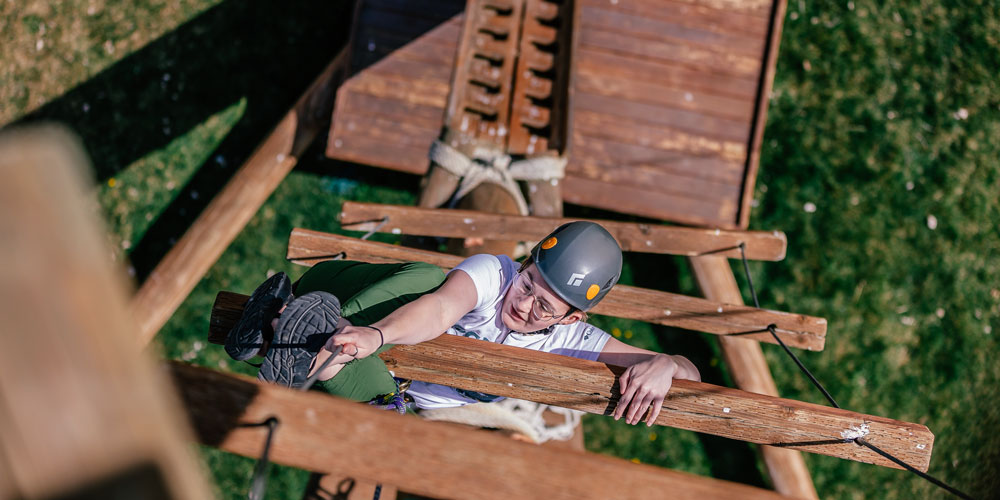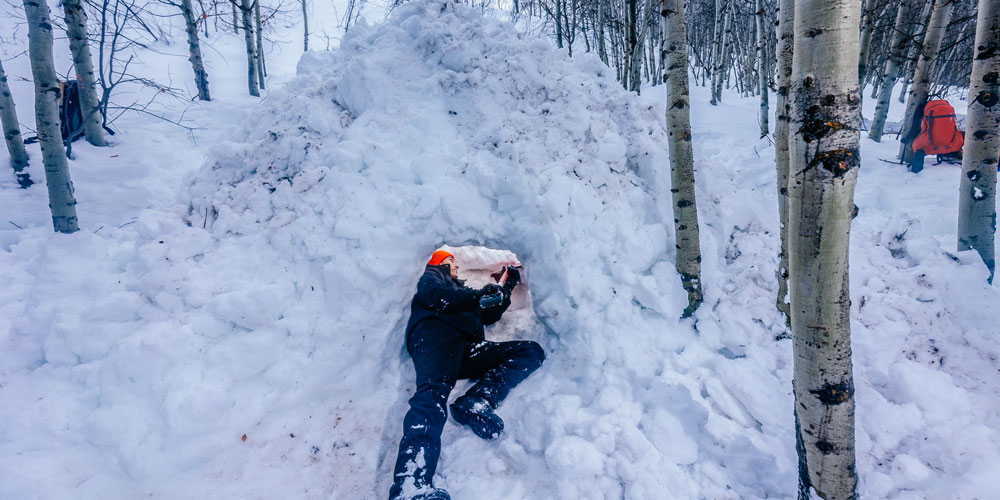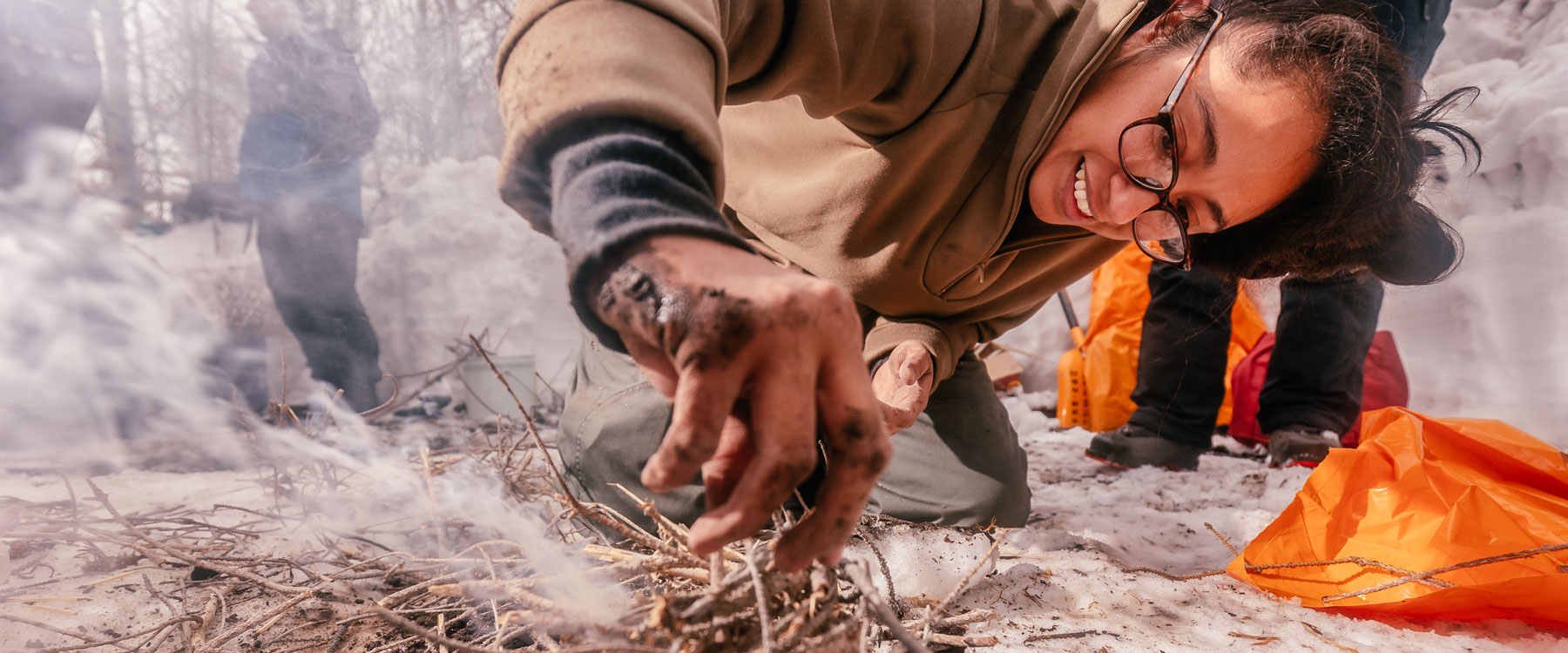The outdoor education program at Idaho State University, which is part of the Human Performance and Sport Studies Department at the College of Education, is the only outdoor education degree program of its kind in the state of Idaho.
The versatile program is offered as a bachelor of science degree and prepares students for a successful career working in outdoor education by teaching them technical, marketable, and practical skills. One of the benefits of the program is the opportunity to have “adventures beyond academia” with students oftentimes venturing outside the traditional classroom to learn hands-on skills that can be applied to outdoor industries as well as all aspects of their lives. Among the broad range of classes students take, courses include winter survival, kayaking, rock climbing, mountaineering, dutch oven cooking, outdoor leadership, and outdoor risk management.
ISU alumni Alina Jablonski and Amy Knight are two students who thrived in outdoor education and have benefited greatly from their time spent in the program. Jablonski, who initially enrolled as a biology major at ISU, first heard about the outdoor education degree program while rock climbing with her friends during a class taught by the ISU Outdoor Adventure Center (OAC). Finding that the outdoor education program fit her true passion and love for the outdoors and adventure, she decided to switch her major that semester.
“EVERYTHING I learned in the program, I keep with me in my current job. ”
Through her experience working at the OAC, Jablonski organized multiple trips, including ones to national parks like Yellowstone and Canyonlands. “I got to go out and lead different trips, maintain all of our gear, and work on our yurt system,” Jablonski said. “It could all be a bit of a challenge sometimes but it was still really fun and, in my opinion, better than sitting inside.”
The outdoor education program is equipped with outstanding instructors who put learning and safety at the forefront of their lessons, which students can recognize in the way they teach. Jablonski mentioned how crucial her instructors were during her learning process by sharing, “My instructors had a massive influence on me from the things I say, how I look at problems, to all of the skills I’ve learned. Especially Justin Dayley, the OAC director. He taught me so much.”
Jablonski graduated with a Bachelor of Science in Outdoor Education in May 2024. Upon graduation, she accepted a position as a full-time staff member at the OAC on the Pocatello campus.
For Knight, who originally enrolled at ISU with a double major in anthropology and physical education in 2010, she felt that working at the climbing wall on-campus and becoming a trip leader for the OAC benefited her greatly during her time in college. Before taking these courses, Knight had no experience in outdoor sports and she stressed how supportive her instructors were when she first joined.


Knight’s ability and enthusiasm for outdoor education, specifically rock climbing, started to shine through once she found her footing in her program, and she soon began to flourish. “I always knew that I wanted to work in higher education,” Knight said. “And then I took the outdoor program classes, and I absolutely loved them. Everything I learned in the program, I keep with me in my current job.”
Knight currently works at Weber State University, managing the rental center and climbing wall. She credits her educational experience at ISU and the skills she gained in the outdoor education program with helping her land her current job. Knight still has all of her textbooks that she refers to on a regular basis, and noted, “The outdoor education program was essential for my current line of work. I bleed orange and black. Without starting at Idaho State and forming a base foundation and gaining those skills, I couldn’t have done anything else.”
Entering the workforce with a degree in outdoor education greatly benefits students with a passion for adventure in the outdoors, and who may be looking to pursue a career in outdoor sports and education. The program proves to be critical in planting seeds of knowledge and confidence in students, and through its various degree levels and class options, students can keep learning and growing, making them highly marketable for positions within the outdoor industry and beyond. Upon successful completion, graduates will have the educational background necessary to work for the forest service, national and state parks, city and military recreation programs, land management agencies, fish and game departments, outdoor guide services, and more.
Jablonski explained that students interested in joining the outdoor education program can be any type of student from any background. She said, “Anybody can do it. My biggest piece of advice would be to do it. There’s so many things I learned from this degree that I took with me after I graduated.”

